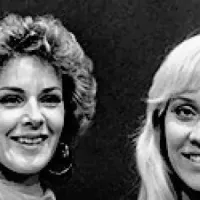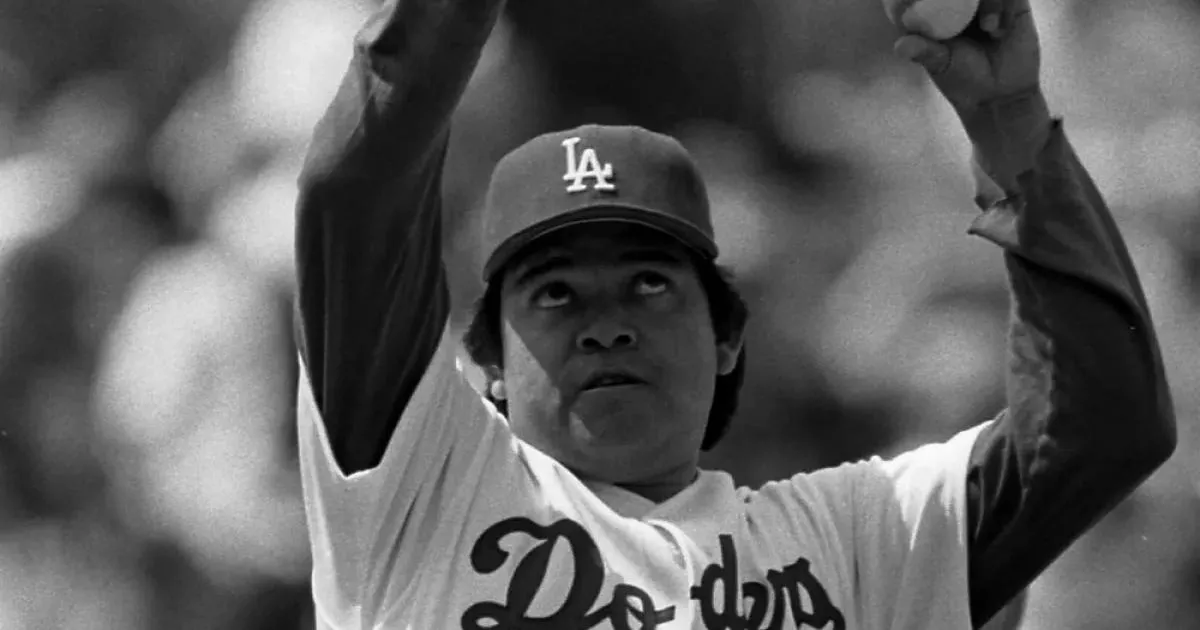Fernando Valenzuela Anguamea was a Mexican professional baseball pitcher who played in Major League Baseball (MLB) for 17 seasons. Primarily known for his time with the Los Angeles Dodgers, Valenzuela was a left-handed pitcher with an unorthodox windup and a signature screwball. His career highlights include a 173-153 win-loss record, a 3.54 earned run average (ERA), and the most career wins above replacement (41.5) of any Mexican-born MLB player.
November 1, 1960: Birth of Fernando Valenzuela
Fernando Valenzuela was born on November 1, 1960, in Etchohuaquila, Mexico.
1965: Dodgers' First World Series Win Since 1965
The Dodgers' 1981 World Series victory was their first since 1965.
1976: ABBA's "Fernando" Becomes Valenzuela's Theme
ABBA's song "Fernando," released in 1976, was played at Dodger Stadium during Valenzuela's warm-up routine.
1977: Professional Baseball Debut
Fernando Valenzuela began his professional baseball career in 1977 with the Mayos de Navojoa.
July 6, 1979: Signing with the Dodgers
Fernando Valenzuela signed his first contract with the Los Angeles Dodgers on July 6, 1979.
1979: Learning the Screwball
In 1979, teammate Bobby Castillo taught Fernando Valenzuela how to throw a screwball.
September 1980: Valenzuela Aids Dodgers in Tight Pennant Race
Valenzuela's pitching in September 1980 helped the Dodgers tie for the National League Western Division lead, though they lost in a one-game playoff.
1980: Major League Debut
Fernando Valenzuela made his Major League Baseball debut in 1980 with the Los Angeles Dodgers.
1980: Double-A Success
Valenzuela excelled in Double-A with the San Antonio Dodgers in 1980, leading the Texas League in strikeouts.
1981: Questions About Valenzuela's Age
During his rookie year in 1981, commentators speculated that Valenzuela might be older than his officially listed age.
1981: Rookie of the Year and World Series Champion
Valenzuela became the first player to win Rookie of the Year and Cy Young in the same season, and the Dodgers won the World Series in 1981.
1981: Postseason Success and World Series Title
Valenzuela performed well in the 1981 postseason, helping the Dodgers win their first World Series since 1965.
1981: Silver Slugger Award
Valenzuela received the Silver Slugger Award for pitchers in 1981, showcasing his offensive talent.
1981: Grand Marshal of the East Los Angeles Christmas Parade
Valenzuela was honored as the Grand Marshal of the East Los Angeles Christmas Parade in 1981.
1981: Fernandomania and Historic Season
Valenzuela's exceptional performance in 1981, winning his first eight starts and achieving both Cy Young and Rookie of the Year awards, sparked the "Fernandomania" phenomenon.
1983: Valenzuela's $1 Million Salary
Fernando Valenzuela became the first baseball player to be awarded a $1 million salary in arbitration in 1983.
1983: Participation in the Tournament of Roses Parade
Valenzuela participated in the Tournament of Roses Parade in 1983, representing the Government of Mexico on their float.
1983: Second Silver Slugger Award
Valenzuela's strong hitting continued, earning him his second Silver Slugger Award in 1983.
1986: Cy Young Award Nomination and All-Star Game Record
In 1986, Fernando Valenzuela had a stellar season, leading the league in wins, complete games, and innings pitched. He was nominated for the National League Cy Young Award, narrowly losing to Mike Scott. At the All-Star Game that year, he struck out five consecutive American League batters, tying Carl Hubbell's record set in 1934.
1986: National League Wins Leader
Valenzuela led the National League with 21 wins in 1986.
1986: Record-Breaking Contract
Valenzuela signed a then-record $5.5 million contract over three years in 1986.
1987: Declining Performance
Valenzuela's performance declined in 1987, finishing the season with a 14-14 win-loss record and a 3.98 ERA.
1988: World Series Victory
Despite missing much of the 1988 season due to injury, Valenzuela received his second World Series ring with the Dodgers.
1988: Record-Setting Salary
Valenzuela's $2.05 million salary in 1988 set a record for a pitcher at that time.
1989: Slight Improvement
Valenzuela's performance improved slightly in 1989, finishing the season with a 10-13 win-loss record.
June 29, 1990: Valenzuela's No-Hitter
Fernando Valenzuela pitched his only MLB no-hitter on June 29, 1990, against the St. Louis Cardinals.
1990: Impressive Hitting Season
In 1990, Valenzuela demonstrated his above-average hitting skills with a .304 batting average, including five doubles, one home run, and 11 RBI in 69 at-bats.
1991: Released by the Dodgers
Despite praise from Dodgers leadership for his contributions to the team, Fernando Valenzuela was released in 1991 after an ineffective spring training.
1991: End of First Stint with Dodgers
Valenzuela's first period with the Los Angeles Dodgers ended in 1991.
1992: Brief Stint with the Tigers and Return to Mexico
Valenzuela attempted a comeback with the California Angels in 1991, but it was unsuccessful. He signed with the Detroit Tigers in 1992 but did not play a game for them and was released. He then returned to Mexico to play in the Mexican League.
1993: Return to MLB
Fernando Valenzuela returned to Major League Baseball in 1993 after a brief hiatus.
1993: Brief Comeback with the Orioles
Valenzuela had a brief stint with the Baltimore Orioles in 1993.
1996: Solid Season with the Padres
Valenzuela had a strong season with the San Diego Padres in 1996, achieving a 13-8 record and a 3.62 ERA.
1997: Retirement from Baseball
Valenzuela retired from professional baseball after the 1997 season.
1999: Declined Dodgers Spring Training Invitation
The Los Angeles Dodgers invited Valenzuela to their spring training in 1999, but he declined the offer.
August 23, 2003: Induction into the Hispanic Heritage Baseball Museum Hall of Fame
In recognition of his significant contributions to baseball, Valenzuela was inducted into the Hispanic Heritage Baseball Museum Hall of Fame on August 23, 2003, at Dodger Stadium.
2003: Return to the Dodgers as Broadcaster
Fernando Valenzuela rejoined the Dodgers as a broadcaster in 2003.
June 29, 2004: Return to Mexican League
On June 29, 2004, at almost 44 years old, Valenzuela announced his return to professional baseball with Los Aguilas de Mexicali in the Mexican Pacific Coast League.
2005: Continued Play in Mexican Winter League
Valenzuela continued to play in the Mexican winter league during the 2005-2006 season.
2005: Recognition as an MLB Latino Legend
Valenzuela was honored as one of three starting pitchers on MLB's Latino Legends Team in 2005, further solidifying his legacy.
December 20, 2006: Final Professional Game
On December 20, 2006, Valenzuela started for Los Aguilas de Mexicali in what would be his last professional game.
2006: Induction into the Baseball Reliquary's Shrine of the Eternals
In 2006, Valenzuela received recognition for his unique and enduring contributions to baseball with his induction into the Baseball Reliquary's Shrine of the Eternals.
2006: Coaching Team Mexico
Valenzuela joined the coaching staff of Team Mexico for the 2006 World Baseball Classic.
2006: Son's Baseball Career
Valenzuela's son, Fernando Jr., began playing minor league baseball in Mexico and independent leagues in 2006. He had previously played in the San Diego Padres and Chicago White Sox organizations.
2008: Participation in the Tournament of Roses Parade
Valenzuela joined the Los Angeles Dodgers on their float for the 2008 Tournament of Roses Parade.
2009: Coaching Team Mexico
Valenzuela continued his coaching role with Team Mexico in the 2009 World Baseball Classic.
October 26, 2010: ESPN Documentary: Fernando Nation
ESPN aired a documentary titled "Fernando Nation" on October 26, 2010, as part of their acclaimed "30 for 30" series. This documentary celebrated Valenzuela's impactful arrival and career with the Dodgers.
2013: Coaching Team Mexico
Valenzuela once again served on the coaching staff of Team Mexico for the 2013 World Baseball Classic.
2013: Enshrinement into the Caribbean Baseball Hall of Fame
Valenzuela's impact on baseball extended beyond the United States, leading to his enshrinement in the Caribbean Baseball Hall of Fame in 2013.
July 22, 2015: Becoming a U.S. Citizen
Valenzuela became a U.S. citizen on July 22, 2015, at a ceremony in downtown Los Angeles.
2015: Valenzuela Becomes U.S. Citizen
In 2015, Fernando Valenzuela became a naturalized citizen of the United States.
2015: Transition to Television Color Commentary
Valenzuela transitioned to television in 2015, becoming a color commentator on the Spanish-language feed of SportsNet LA.
October 25, 2017: First Pitch at the World Series
Valenzuela threw out the ceremonial first pitch at Game 2 of the 2017 World Series, held at Dodger Stadium.
2017: Team Ownership
Expanding his involvement in baseball, Valenzuela purchased the Mexican League team Tigres de Quintana Roo in 2017.
2017: Coaching Team Mexico
Valenzuela remained a dedicated coach for Team Mexico during the 2017 World Baseball Classic.
July 6, 2019: Jersey Retirement by the Mexican Baseball League
On July 6, 2019, the Mexican Baseball League paid tribute to Valenzuela's remarkable career by retiring his jersey number 34 across the entire league.
2019: Named a Legend of Dodger Baseball
The Dodgers recognized Valenzuela's impact by naming him part of the inaugural class of "Legends of Dodger Baseball" in 2019.
August 11, 2023: Jersey Retirement
In a testament to his lasting legacy with the Dodgers, Valenzuela's jersey number 34 was officially retired on August 11, 2023. He joined Jim Gilliam as the only non-Hall of Fame Dodgers to receive this honor.
2023: Induction into the Dodgers Ring of Honor
Valenzuela was officially inducted into the Dodgers Ring of Honor during "Fernandomania" weekend from August 11–13, 2023.
2023: Inflation Adjustment
Valenzuela's 1983 salary of $1 million is equivalent to approximately $3.16 million in 2023.
October 1, 2024: Valenzuela Hospitalized
On October 1, 2024, it was reported that Fernando Valenzuela had been hospitalized for an undisclosed illness.
October 22, 2024: Death of Fernando Valenzuela
Fernando Valenzuela passed away on October 22, 2024.
Mentioned in this timeline
California is a U S state on the Pacific Coast...

ABBA was a highly successful Swedish pop group formed in...

Christmas is an annual festival celebrated on December th commemorating...

Inflation in economics signifies an increase in the average price...

Los Angeles is the most populous city in California and...

Chicago is the most populous city in Illinois and the...
Trending
57 minutes ago Ameren Prices $400M Senior Notes, $900M Bonds for Grid Investment, Reshaping Debt
2 hours ago Pokemon Celebrates 30 Years: A Cultural Phenomenon with Multimillion-Dollar Cards

2 hours ago Daylight Saving Time 2026: Prepare to set your clocks forward and lose sleep.

2 hours ago Indiana Investigates CenterPoint Energy Amid Bill Concerns and New Utility Law.

2 hours ago Galatasaray's Champions League opponent revealed; Liverpool legend comments on Juventus match; Real Madrid faces Man City.

4 hours ago Google Maps to fully function in South Korea after data agreement.
Popular

Jesse Jackson is an American civil rights activist politician and...

Barack Obama the th U S President - was the...

Susan Rice is an American diplomat and public official prominent...

XXXTentacion born Jahseh Dwayne Ricardo Onfroy was a controversial yet...

Michael Joseph Jackson the King of Pop was a highly...

Kashyap Pramod Patel is an American lawyer who became the...
